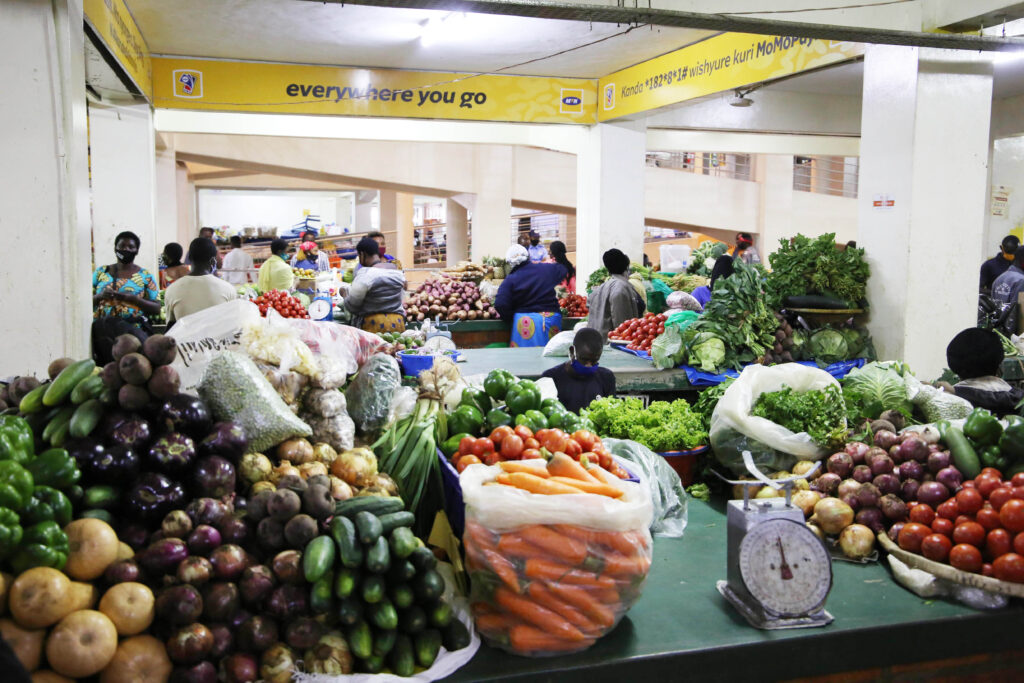Food & Climate
From US to Bulgaria and UK, food prices are rising everywhere, and no one will escape the increase cost of main and margin commodities, exploding consumer protest in some countries.
In US, eating is becoming very expensive, and wages have not kept up with regular inflation, let alone food inflation, so it feels like even more of a painful hit to the wallet, according to a report seen by “Food & Climate” platform.
The great US egg shortage is currently leaving classic American diner owners asking if 24-hour breakfast can continue to be a realistic thing they offer. Parents are reporting they are feeding their kids fewer pieces of fresh fruit because prices are so high. Middle-class folks are rethinking their eating habits – no more dining out, cheaper grocery staples, less organic.
Supermarkets everywhere are struggling to maintain existing pricing.
Bulgarians are set to renew a nationwide boycott of large food chains and supermarkets on Thursday as discontent over grocery prices in Southeastern Europe persists.
The initiative, backed by several grassroots organizations, comes a week after the last boycott and is organized to coincide with similar action in Greece and Croatia this week.
Food prices in Balkan region
Consumer protests, which are sweeping through swathes of the Balkan region with varying degrees of success, broke out in January in Croatia.
Last week’s boycott in Bulgaria led to a drop of nearly 29% in turnover of major supermarkets, the Sofia-based press agency Novinite reported.
Protest organizers are demanding supermarkets limit their profit margins on foodstuffs to less than 30% and want lawmakers to pass legislation to regulate prices. They called on Bulgarians to shop in small stores and buy local produce.
Emil Georgiev, chairman of the Federation of Consumers of Bulgaria, told the Bulgarian News Agency (BTA) that last week’s initiative was successful because it “fanned the flames of consumer discontent.”
The boycott has prompted a response from the national authorities, with several state agencies set to start inspections of businesses involved in the food supply chain from Thursday onwards.
The probe, which is overseen by Bulgaria’s agriculture ministry, is expected to look into every stage of the food industry, from producers to processors, wholesalers and retailers.
Information about unfair practices gathered during the investigation will be fed into government-led legislation on regulating agrifood supply chain contracts, BTA reported.
But the measures fall short of the boycott organizers’ demands for prices to be regulated.

A national boycott took place in neighboring Greece on Wednesday while activists in Croatia called for action against banks and telecommunications companies on Thursday, Novinite reported. Similar initiatives have been announced in Bosnia, Montenegro and other countries in the region, according to “TVP World”.
UK food importers are clashing with the government over a threat of inflationary increases to import costs that shoppers can ill-afford, one expert has told The Loadstar.
Nigel Jenney, head of the Fresh Produce Consortium, warned it would be “impossible” for the supply chain to absorb an expected 27% hike in import fees set to be phased-in from August.
The main reasons
Extreme weather events will keep hitting harvests of key commodities like coffee and cocoa, causing sudden price spikes, according to supply chain experts.
“Food commodity prices are set to remain volatile over the coming year. In addition to climate risks, higher wages for workers and rising energy costs are also likely to cause costs for firms in the food industry to rise,” a statement from Inverto, the procurement and supply chain management subsidiary of Boston Consulting Group, said.
Central bankers around the world have been examining the impact on prices of climate change, especially in relation to the policy of targeting inflation. Global warming could add up to 3 percentage points to annual food inflation and up to 1.2 points to headline inflation globally by 2035, according to some projections.
Inverto noted that heavy rainfall and higher temperatures have led to coffee prices jumping 103% and cocoa prices rising 163% in the last 12 months. Meanwhile, sunflower oil prices have increased 56% due to drought in Bulgaria and Ukraine, and the ongoing war.
Spencer Hyman, a chocolate expert from Cocoarunnners, said the cocoa price rises are also due to chronic underinvestment in cocoa farms and investor speculation.
Central banks should consider shifting to more flexible inflation targets to respond to the supply shocks that climate change will make more likely, Luiz Awazu Pereira da Silva, the former deputy general manager of the Bank for International Settlements, has argued.
Inverto says businesses should plan for the ongoing volatility by adapting their procurement strategy.

“Food manufacturers and retailers should diversify their supply chains and sourcing strategies to reduce overreliance on any one region affected by crop failures,” said Katharina Erfort, principal at Inverto. “Companies should also undertake more contingency planning that will allow them to more quickly swap one food commodity for another”, according to “Green Central Banking“.

